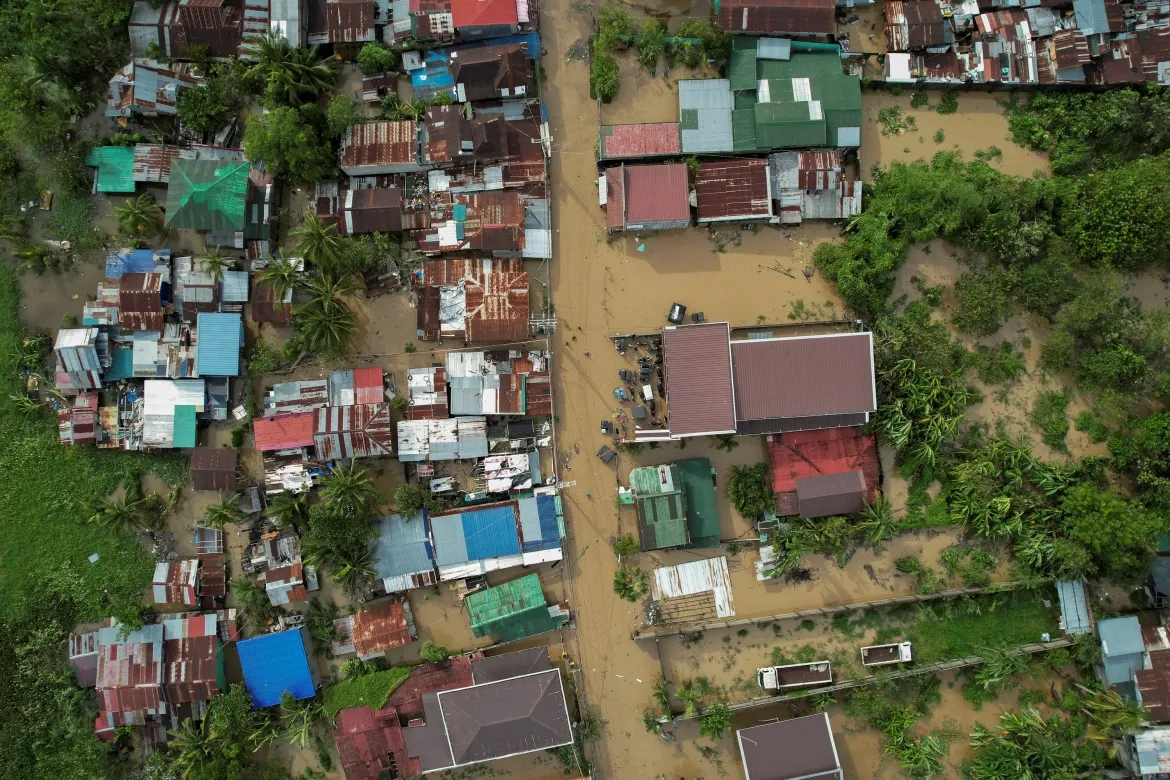Super Typhoon Noru Sweeps Across Philippines
Super Typhoon Noru (known locally as "Karding") impacted the Philippines on Sunday and Monday - affecting over 122K people, damaging 655 houses, and destroying farmlands and infrastructure. The storm underwent one of the most rapid intensifications in the history of the Pacific [...]

Facts
- Super Typhoon Noru (known locally as "Karding") impacted the Philippines on Sunday and Monday - affecting over 122K people, damaging 655 houses, and destroying farmlands and infrastructure. The storm underwent one of the most rapid intensifications in the history of the Pacific basin before landfall.
- At least six people have died, including five rescuers operating in floodwaters. Gov. Daniel Fernando of the Bulacan province hailed the responders as "living heroes who were helping save the lives of our countrymen amid this calamity."
- More than 74K were evacuated from their homes before the typhoon hit. The country's meteorology agency warned that heavy rain would cause severe flooding and landslides.
- The main island of Luzon suffered sustained winds of 185 kph (115 mph). Luzon comprises more than two-thirds of the economy and roughly half of the Philippines's 110M population.
- The Philippines experiences about 20 tropical storms yearly. In 2013, Super Typhoon Haiyan, one of the most powerful tropical cyclones ever recorded, killed 6.3K.
Sources: Relief Web, Listen, Taipei Times, Independent, and Saltwire.
Narratives
- Narrative A, as provided by CNN. The rapid intensification of this super typhoon was extraordinary. The potential role of climate change on these turbo-charged storms has particular relevance for the Philippines. Battling about 20 named storms each year, this Asia-Pacific nation is struggling to protect its communities in a warming world.
- Narrative B, as provided by Financial Times. It's easy to dismiss any extreme weather event as a consequence of climate change, but in reality, these tragedies are usually influenced by a myriad of factors that have little to nothing to do with it. More research is needed before we can establish any direct causal link between any specific storm and climate change.






